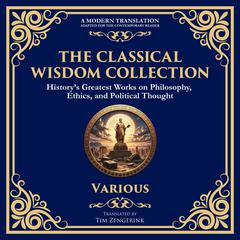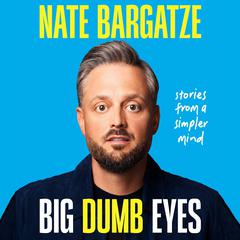 Play Audiobook Sample
Play Audiobook Sample
Beyond Good and Evil Audiobook
 Play Audiobook Sample
Play Audiobook Sample
Quick Stats About this Audiobook
Total Audiobook Chapters:
Longest Chapter Length:
Shortest Chapter Length:
Average Chapter Length:
Audiobooks by this Author:
Publisher Description
Friedrich Nietzsche's Beyond Good and Evil, first published in 1886, presents a scathing critique of traditional morality and attacks previous philosophers for their blind acceptance of Christian ideals of virtue. As an alternative to what he viewed as the illogical and irrelevant philosophy of the nineteenth century, Nietzsche argues for the importance of imagination, self-assertion, danger, and originality for genuine philosophy. He furthermore denies the existence of a universal system of morality and instead offers a framework in which social roles and power dynamics dictate what is appropriate. A culmination of Nietzsche's mature philosophy, Beyond Good and Evil is a classic of moral thought and one of the foundations of existentialism. This edition is the translation by Helen Zimmern.
Download and start listening now!
"Love him or hate him, Nietzsche hits a nerve with this book. In it he declares that "God is dead." This of course has rattled the cage of many readers which is often the point of literature. This is a wonderfully written book that will rattle your cage, and I love it!"
— Rich (4 out of 5 stars)
Beyond Good and Evil Listener Reviews
- — Thoimas Anderson, 2/14/2023
- — Barbara Stratton, 10/11/2022
-
" If only every philosopher were as wildly interesting as this one. "
— Gwen, 2/14/2014 -
" Lots of great ruminations here. He makes you shed your encoding and see things differently. A must for people who think they know everything. Look closer. "
— Danny, 1/31/2014 -
" It was very well written and thought out with distinction. However I find the first part of most philosophy papers to be a little boring where the whole goal is to point out things that are wrong with other prominent philosophers ideas. The middle 3-4 chapters were really good with a lot of short but insightful paragraphs. However the end droned on with a lot of whining about modern Germany and civilization. So I'd like to just condense this book to the middle 3 or so chapters. "
— Matthewmartinmurray, 1/19/2014 -
" Quite entertaining, even when he's wrong. "
— Josh, 1/17/2014 -
" Probably the coolest book on man in relation to morality and ethics that I have ever read. "
— Ming, 1/14/2014 -
" My first Nietzsche. Shows the importance of art in expressing the soul. Provides a fascinating critique of Walker Percy's "Lost in the Cosmos" and Tocqueville's "Democracy in America" "
— Jacob, 1/13/2014 -
" It's hard to recommend Nietzsche...he's against democracy, the suffrage of women, mildly racist, etc...but through all the anachronism, he's a phenomenon. Arrogant in all the right ways and some of the wrong ones. "
— Nolan, 1/9/2014 -
" Admittedly *not* my good choice for summer reading. "
— Kim, 12/7/2013 -
" A monumental book for me. Read this in college and discovered how philosophy relates to life. I know, a little late, but better late than never. "
— Amber, 11/29/2013
About Friedrich Nietzsche
Friedrich Nietzsche (1844–1900) was a nineteenth-century German-born philosopher and classical philologist. He wrote critical texts on religion, morality, contemporary culture, philosophy, and science, using a distinctive German language style. In 1889 he exhibited symptoms of insanity and lived his remaining years in the care of his mother and sister. His ideas exercised a major influence on several prominent European philosophers, including Martin Heidegger, Albert Camus, and Jean-Paul Sartre.
About Steven Crossley
Steven Crossley, a graduate of the Royal Academy of Dramatic Art in London, has built a career on both sides of the Atlantic as an actor and audiobook narrator, for which he has won more than a dozen AudioFile Earphones Awards and been a nominee for the prestigious Audie Award. He is a member of the internationally renowned theater company Complicite and has appeared in numerous theater, television, film, and radio dramas.









































